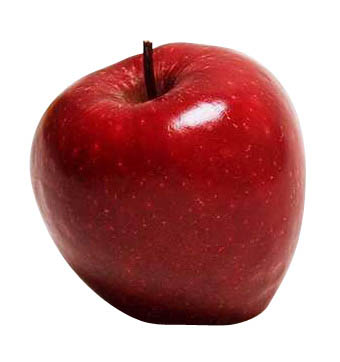Send your comments to the US Department of Agriculture by February 16,
2010.
Its not yet legal for Monsanto to sell its GM alfalfa seeds in Canada
but a US injunction on planting in that country could soon be
overturned. If GM alfalfa is planted in the US, it will quickly
contaminate our food system as well as Canadian alfalfa crops. It will
also lead to the legalization of GM alfalfa in Canada (Canada approved
Monsanto’s GM Roundup Ready alfalfa in 2005 but it still needs variety
registration as a last step before commercialization here).
The US Department of Agriculture (USDA) was court-ordered to conduct
an Environmental Impact Statement (EIS) on alfalfa and GM alfalfa
plantings were halted until this EIS was satisfactorily completed.
This draft EIS is now out for comment until February 16. Farmers and
their organizations in Canada are encouraged to send comments about
the expected impact of GM alfalfa contamination. Consumers are also
asked to express their concern.
Our strong action could stop GM alfalfa and result in an unprecedented
ruling about the real contamination risks of GM.
Please take one of these three actions.
1. Send comments from the web: Our partner in the US, The Center of
Food Safety, has launched an action where consumers and farmers can
send comments from their website http://ga3.org/campaign/alfalfaEIS
2. Coordinate with us to write your substantial comments – Please also
send us your comments and cc them to the Minister of Agriculture and
Agriculture Critics from other Parties. Contact Lucy Sharratt, CBAN
Coordinator at 613 241 2267 ext.6 or coordinator@cban.ca
3. Sign your group to the “No to GMO Alfalfa” statement http://www.cban.ca/alfalfa
The “No to GMO Alfalfa” Campaign in Canada is coordinated by the
Organic Agriculture Protection Fund of the Saskatchewan Organic
Directorate and the Canadian Biotechnology Action Network
For more information: http://www.cban.ca/alfalfa coordinator@cban.ca
613 241 2267 ext. 6
Tell the US Government That You Care About GE Contamination of Organic
Food!
In 2006, the Center for Food Safety (CFS) sued the Department of
Agriculture (USDA) for its illegal approval of Monsanto’s genetically
engineered (GE) Roundup Ready alfalfa. The federal courts sided with
CFS and banned GE alfalfa until the USDA fully analyzed the impacts of
the plant on the environment, farmers, and the public in a rigorous
analysis known as an environmental impact statement (or EIS). USDA
released its draft EIS on December 14, 2009. A 60-day comment period
is now open until February 16, 2010. This is the first time the USDA
has done this type of analysis for any GE crop. Therefore, the final
decision will have broad implications for all GE crops.
CFS has begun analyzing the EIS and it is clear that the USDA has not
taken the concerns of non-GE alfalfa farmers, organic dairies, or
consumers seriously. USDA’s preliminary determination is to once
again deregulate GE alfalfa without any limitations or protections for
farmers or the environment. Instead USDA has completely dismissed the
fact that contamination will threaten export and domestic markets and
organic meat and dairy products. And, incredibly, USDA is claiming
that there is no evidence that consumers care about such GE
contamination of organic!
USDA also claims that consumers will not reject GE contamination of
organic alfalfa if the contamination is unintentional or if the
transgenic material is not transmitted to the end milk or meat
product, despite the fact that more than 75% of consumers believe that
they are purchasing products without GE ingredients when they buy
organic.
USDA claims that Monsanto’s seed contracts require measures sufficient
to prevent genetic contamination, and that there is no evidence to the
contrary. But in the lawsuit requiring this document, the Court found
that contamination had already occurred in the fields of several
Western states with these same business-as-usual practices in place!
USDA predicts that the approval of GE alfalfa would damage family
farms and organic markets, yet doesn’t even consider any limitations
or protections against this scenario. Small, family farmers are the
backbone and future of American agriculture and must be protected.
Organic agriculture provides many benefits to society: healthy foods
for consumers, economic opportunities for family farmers and urban and
rural communities, and a farming system that improves the quality of
the environment. However, the continued vitality of this sector is
imperiled by the complete absence of measures to protect organic
production systems from GE contamination and subsequent environmental,
consumer, and economic losses.
Tell USDA That You DO Care About GE Contamination of Organic Crops and
Food! http://ga3.org/campaign/alfalfaEIS
This alert was published by the Organic Agriculture Protection Fund of
the Saskatchewan Organic Directorate and the Canadian Biotechnology
Action Network. January 2010.
Lucy Sharratt, Coordinator
Canadian Biotechnology Action Network (CBAN)
Collaborative Campaigning for Food Sovereignty and Environmental Justice
431 Gilmour Street, Second Floor
Ottawa, Ontario, Canada, K2P 0R5
Phone: 613 241 2267 ext.6
Fax: 613 241 2506
coordinator@cban.ca
www.cban.ca














